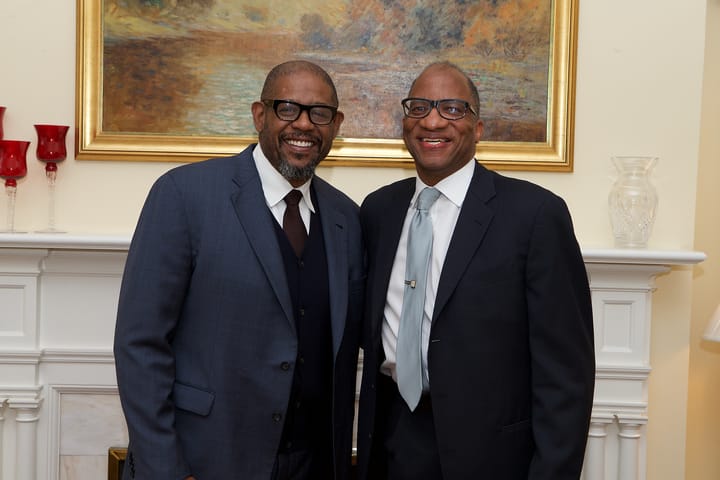Reflections: Transitions
The peaceful transition of power is a core part of American democracy, columnist and board member Allan Winkler writes.

One of the strengths of American democracy has been a willingness to accept the results of elections, even when the results bring a major change.
Such transitions are seldom easy, even in the best of times. But for decades, even centuries, they have been a hallmark of our past.
The United States’ first true transition of power came in 1800. George Washington, our nation’s first President, was previously succeeded by his Vice President John Adams in 1796. During his tenure, political parties began to form, despite Washington’s warning against factionalism in his farewell address. Adams became head of what was called the Federalist group, which believed in a strong central government. Thomas Jefferson, author of the Declaration of Independence, led a group of new Republicans, who favored local government to national government and argued that too much government was the root of all problems.
In the election of 1800, the Jeffersonian Republicans triumphed. The campaign had been nasty, with angry insults exchanged by both sides. As the rest of the world watched, half expecting resistance from the party in power, the opposition led by Jefferson took over, proving that a peaceful transition could take place.
Another important episode occurred in 1824. Andrew Jackson had the most popular and Electoral College votes, but lacked a majority, and he lost to John Quincy Adams in the House of Representatives. Furious, Jackson might have resisted, but instead he simply bided his time, accepted the result, and came back to win decisively in 1828.
In the mid-19th century, Southerners who were angry at the election of Abraham Lincoln and fearful that an end to the institution of slavery might be likely opted to leave the union entirely. Secession led to a bloody Civil War with over 600,000 deaths that culminated in the North’s victory and the survival of the U.S.
A century later, in the election of 1960, a peaceful transition took place after a hard-fought election. Democrat John F. Kennedy eked out a victory over Republican Richard Nixon. That victory, in all likelihood, resulted from shenanigans on the part of Chicago Mayor Richard Daley and the Democratic establishment in Illinois, which gave Kennedy the victory. Still, Nixon refused to challenge the result, aware that it might tarnish the institution of the presidency.
Likewise, in 2000, another close election could have torn the country apart. On election night, as returns trickled in, it was clear that neither Republican George W. Bush nor Democrat Al Gore had the necessary 270 electoral votes necessary to win. In December, after more that 5 weeks of suits and countersuits by both sides over which votes should be counted, and for how long, the case reached the Republican-dominated Supreme Court. By a 5-4 vote, the justices ruled that the recount should be halted, leaving Bush the winner. Rather than protesting further or launching a violent effort to secure his own victory, Gore quietly and gracefully accepted the result, and the country moved on.
Things were different, of course, in 2020. Then-President Donald Trump refused to accept the result of that election, despite the failure of dozens of lawsuits. Chaos from that resistance notwithstanding, the government survived. But the nation remains fragile to this day, particularly as we approach another election in less than two weeks.
This country has prided itself on fair elections, fair vote counts, and peaceful transitions. We have watched as John Kennedy succeeded Dwight Eisenhower, as Richard Nixon succeeded Lyndon Johnson, as George W. Bush succeeded Bill Clinton, to mention but a few of the most recent transitions.
Other countries around the world have descended into electoral chaos as contested elections have taken place. We have been proud of our own record in the face of such disruptions. We can only hope to maintain our own peaceful electoral process, whatever pressures we face.
Allan Winkler is a University Distinguished Professor of History Emeritus at Miami University, where he taught for three decades. He serves on the Board of Directors for the Oxford Free Press.




